news
Just IN : Tinubu Approves Taiwo Oyedele as Chairman of Fiscal Policy and Tax Reforms Committee
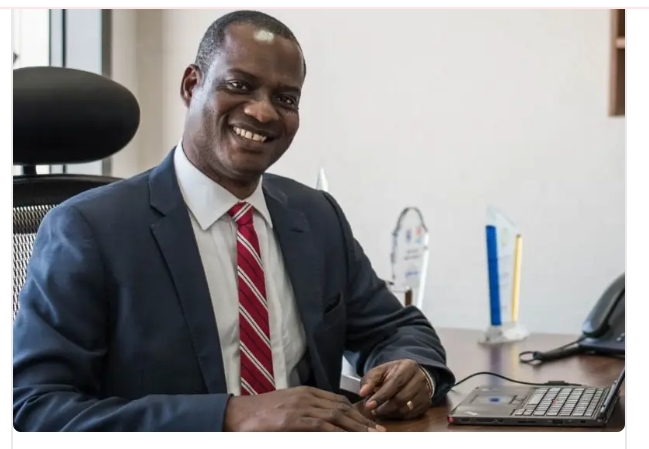
 President Bola Tinubu has approved the establishment of a Presidential Committee on Fiscal Policy and Tax Reforms.
President Bola Tinubu has approved the establishment of a Presidential Committee on Fiscal Policy and Tax Reforms.
The committee according to a statement issued by Dele Alake, Special Adviser to the President on Special Duties, Communications and Strategy on Friday will be chaired by Fiscal Policy Partner and Africa Tax Leader at PriceWaterhouseCoopers (PwC), Mr. Taiwo Oyedele.
The statement said that setting up the committee was in consonance with President Tinubu’s promise to remove all barriers impeding business growth in Nigeria.
It explained that the committee will comprise experts from both the private and public sectors and have responsibility for the various aspects of tax law reform, fiscal policy design and coordination, harmonization of taxes, and revenue administration.
Explaining further, the Special Adviser to the President on Revenue, Mr. Adelabu Zacch Adedeji, said that President Tinubu recognizes the importance of a sound fiscal policy environment and an effective taxation system for the functioning of the government and the economy.
He said, ”Nigeria ranks very low on the global ease of paying taxes while the country’s Tax to GDP ratio is one of the lowest in the world and well below the African average.
”This has led to an overreliance on borrowing to finance public spending which in turn limits the fiscal space as debt service costs consume a greater portion of government revenue, annually resulting in a vicious cycle of inadequate funding for socio-economic development.
”While some incremental progress has been recorded over the years, the outcomes have not been transformative enough to change the narrative,” he said.
Adedeji outlined the key challenges in Nigeria’s tax system to include multiple taxes and revenue collection agencies, fragmented and complex tax system, low tax morale, high prevalence of tax evasion, high cost of revenue administration, lack of coordination between fiscal and economic policies, and poor accountability in the utilization of tax revenue.
The establishment of this committee reflects President Tinubu’s commitment to addressing these challenges and bringing about transformative reforms in fiscal policy and taxation.
The committee’s primary objective is to enhance revenue collection efficiency, ensure transparent reporting, and promote the effective utilization of tax and other revenues to boost citizens’ tax morale, foster a healthy tax culture, and drive voluntary compliance.
These efforts will not only improve Nigeria’s revenue profile but also create a more conducive and internationally-competitive business environment.
”Our aim is to transform the tax system to support sustainable development and achieve a minimum of 18% Tax to GDP ratio within the next 3 years without stifling investment or economic growth.
”It should be noted that this committee will not only advise the government on necessary reforms, but will also drive the implementation of such recommendations in support of the comprehensive fiscal policy and tax reform agenda of the current administration,” the SA on Revenue added.
Mr. Oyedele is said to be a highly accomplished professional with extensive expertise in fiscal policy, taxation, and economic matters. He currently serves as PWC Africa tax leader.
He is the Thematic Lead for the Fiscal Policy & Planning Commission and serves as the Chairman of the West Africa Debt Management Roundtable of the Nigerian Economic Summit Group (NESG).
He chairs the Taxation & Fiscal Policy Faculty Board of the Institute of Chartered Accountants of Nigeria (ICAN) and is a member of the Nigerian Taxation Standards Board.
He also serves as a member of the Ministerial Committee on the implementation of Nigeria’s National Tax Policy.
He is a member of the Global Tax Forum and has previously served as a member of the Global Governing Council of the Association of Chartered Certified Accountants (ACCA).
As an educator, Oyedele holds the position of Associate Professor at the Babcock University Business School.
He is an alumnus of the London School of Economics & Political Science, Yale University and Harvard Kennedy School Executive Education. He is a guest lecturer at the Lagos Business School and the Founder and President of Impact Africa Foundation.
By Cynthia Alo To prevent collapse of the manufacturing sector, job losses and more suffering for Nigerians at the bottom of the economy ladder, world’s leading management and financial consultancy, PricewaterhouseCoopers, PwC, has called on the Federal Government to improve the tough operating environment in the country before imposing the proposed…
news
Alleged ₦8.7bn Fraud: Malami, Others Oppose EFCC’s Property Forfeiture Move
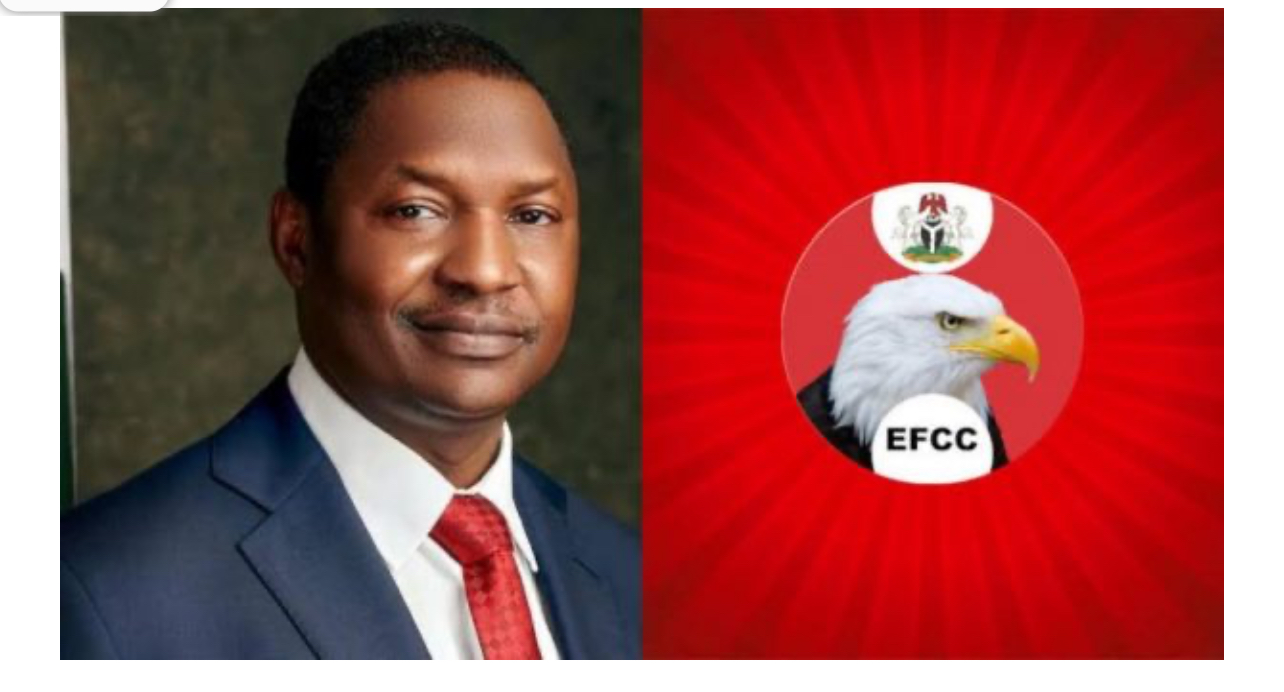
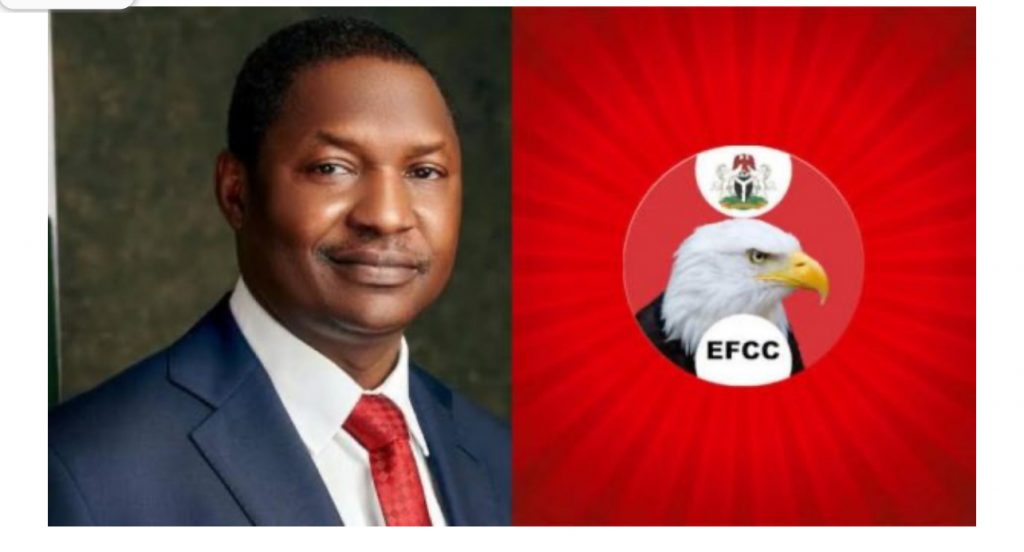
More applicants have approached the Federal High Court in Abuja over some properties linked to former Attorney-General of the Federation (AGF) and Minister of Justice, Abubakar Malami (SAN).
The applicants prayed for the setting aside of the interim forfeiture order made against some of the property linked to the former minister.
They argued that the Economic and Financial Crimes Commission (EFCC) failed to establish any nexus between their property and any unlawful activity, contrary to Section 135 of the Evidence Act and the Advance Fee Fraud.
In their separate motions on notice filed by their lawyers, the applicants – Alhaji Muktaka Usman Junju, and Rayhaan Bustan and Agro Allied Limited – urged the court to vacate and discharge the order made on January 6 by Justice Emeka Nwite.
Junju, a businessman, through his lawyer, Kalu Kalu Agu, prayed the court to set aside the order made on property listed as Number 40 by the EFCC.
Rayhaan Limited, an agricultural food production company, through its lawyer, Joseph Daudu (SAN), also asked the court to remove property listed as numbers one, 28, 29, 30, 31, and 32 from the list of property brought by the anti-graft agency.
The duo, in their applications, also prayed the court for an order directing the immediate restoration of their possession, control, and enjoyment of the listed property from the 57 property sought to be forfeited to the Federal Government.
The News Agency of Nigeria (NAN) recalls that the property listed as number 40 in the EFCC’s schedule is Al-Afiya Energy Tanker Garage, opposite Rayhaan University Health Centre, along Sani Abacha Bypass Road, Birnin-Kebbi, valued at N2,450,000,000.00.
Property Number One is a luxury duplex at Amazon Street, Plot Number 3011 within the Cadastral Zone, A06 Maitama; File Number: An enhancement 11352, which was purchased in December 2022 at N500,000,000.00 (value after enhancement at N5,950,000,000).
Property numbers 28, 29, 30, 31 and 32, which are under Rayhaan Agro Allied Factory in Kebbi, include Factory Buildings, Factory Machines and Plants Units, Factory Mosque, Rayhaan Mill Staff Quarters and Rayhaan Bustan Building, valued at N4,200,000,000.00; N10,500,000, 000.00; N2,450,000,000.00; N1, 487,500,000.00; and N3,150,000, 000.00 respectively.
NAN reports that Justice Nwite had, on Jan. 6, ordered the interim forfeiture of the 57 property suspected to be proceeds of unlawful activities linked to Mr. Malami.
The multi-billion naira landed properties are located in Abuja, Kebbi, Kano and Kaduna States.
The judge granted the order following an ex parte motion moved by the EFCC’s lawyer, Ekele Iheanacho, SAN, to the effect.
Malami was the AGF and Minister of Justice in the Muhammadu Buhari administration.
Nwite, in the ruling, also directed the publication of the interim order of forfeiture in any national daily, inviting any person(s) or body (ies) who might have an interest in the property to show cause, within 14 days of the publication, why a final order of forfeiture to the Federal Government of Nigeria should not be made.
Although the case was formerly before Justice Nwite, the case file had been transferred by the chief judge to Justice Obiora Egwuatu of a sister court for adjudication.
Also in his motion on notice dated January 26, but filed January 28 by Agu, Junju stated that the property listed as Number 40 belonged to him.
According to Junju, the root of title and acquisition history are described in the schedule attached to the affidavit in support of the motion, as Exhibit A.
Nigerian Property Investment
His lawyer argued that the commission had not established that the property was proceeds of an unlawful purpose, which, he argued, robbed the court of jurisdiction.
Agu submitted that the EFCC had failed to comply with the constitutional and statutory dictates of Section 44(2) (b) of the 1999 Constitution (as amended) and Section 17(1) of the Advance Fee Fraud and Other Fraud Related Offences Act 2006, requiring it to disclose specific particulars of the alleged unlawful act committed and the applicable laws.
Besides, he said the court did not conduct a global review of the entire documents and exhibits attached to the commission’s motion ex parte filed on January 6 and granted the same date, “which constitutes an abdication of its judicial duty to properly consider the application to ensure there is a reasonable suspicion that the property was linked to unlawful activities.”
The lawyer argued that Junju duly purchased the land in question “from an original allottee, by name Alhaji Usman Na’Allah Bunza and has no link with Malami, SAN or any Al-Afiya Garage.”
“Respondent (EFCC) is guilty of fraud and non-disclosure of material facts regarding ownership and acquisition of property of the applicant (Junju) forfeited in the interim by the orders of this honourable court.
“The interim forfeiture was procured in violation of Section 5 of the Assets Tracing, Recovery and Management Regulations 2019, having not been initiated through the Office of the Attorney-General of the Federation,” Agu said.
Also in his argument, Daudu, in their motion dated Jan. 19 but filed Jan. 23, said Rayhaan Ltd, by law, is a corporate person and can acquire and own property anywhere in Nigeria.
He described Rayhaan as “a limited liability company, duly registered with the Corporate Affairs Commission (CAC) pursuant to the Companies and Allied Matters Act (CAMA).”
The senior lawyer said properties listed as Nos. 1, 28, 29, 30, 31 and 32 all belonged to the company.
“The applicant’s property Number One was acquired with payments made from Excel Merchants Ltd in favour of the applicant,” he said.
Daudu also said the property numbers 28, 29, 30, 31, and 32 were acquired by the company from banking facilities granted by NEXIM BANK, the Bank of Industry and Access Bank Plc.
“The NEXIM Bank loan has now been called in by reason of the interim order of forfeiture of January 6, 2026.
“Zenith Bank Plc, which had guaranteed the loan, has revoked the guarantee by reason of the interim order of forfeiture of January 6, 2026, and has commenced daily interest charges on the outstanding sum,” Daudu said.
The lawyer argued that the EFCC did not establish that the assets listed as numbers one, 28, 29, 30, 31, and 32, in the interim forfeiture order were proceeds of some unlawful activities, as required under Section 17 (1) of the Advance Fee Fraud Act 2006, and that no predicate offence was linked to the acquisition of the property.
He also argued that the court was not invoked and prompted to conduct a global review of the entire documents and exhibits attached to the motion ex parte, “which constitutes an abdication of its judicial duty to properly consider the application to ensure that there is a reasonable suspicion that they were linked to unlawful action.”
Daudu aligned with Agu that the EFCC “is guilty of fraud and non-disclosure of material facts regarding ownership and acquisition of properties of the applicant forfeited by the orders” of the court.
He submitted that the proceedings of January 6 amounted to unlawful deprivation of property, denial of fair hearing and abuse of court process, urging the court to set the same aside.
Malami had, equally, filed a motion, praying the court to vacate the interim order of forfeiture against his property.
Also, Justice Egwuatu has fixed February 12 for the hearing of the matter.
news
How Tinubu’s Reforms Are Redefining Nigeria’s Economic Future
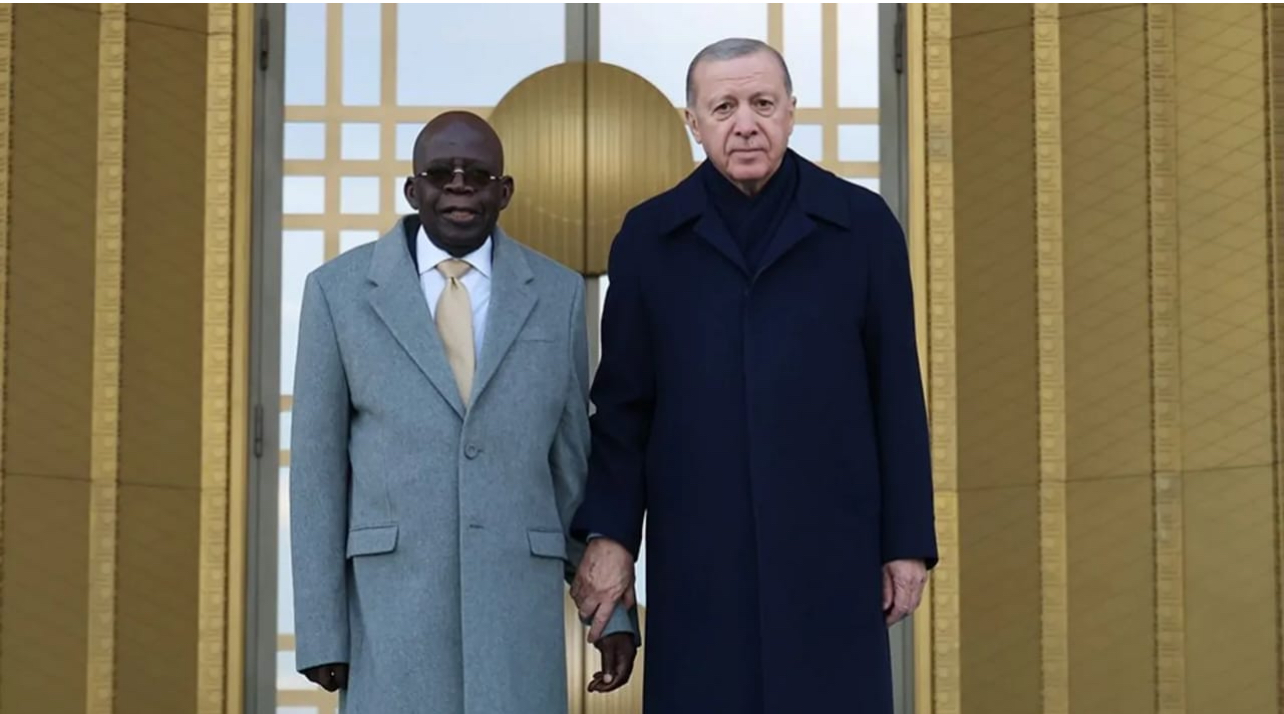
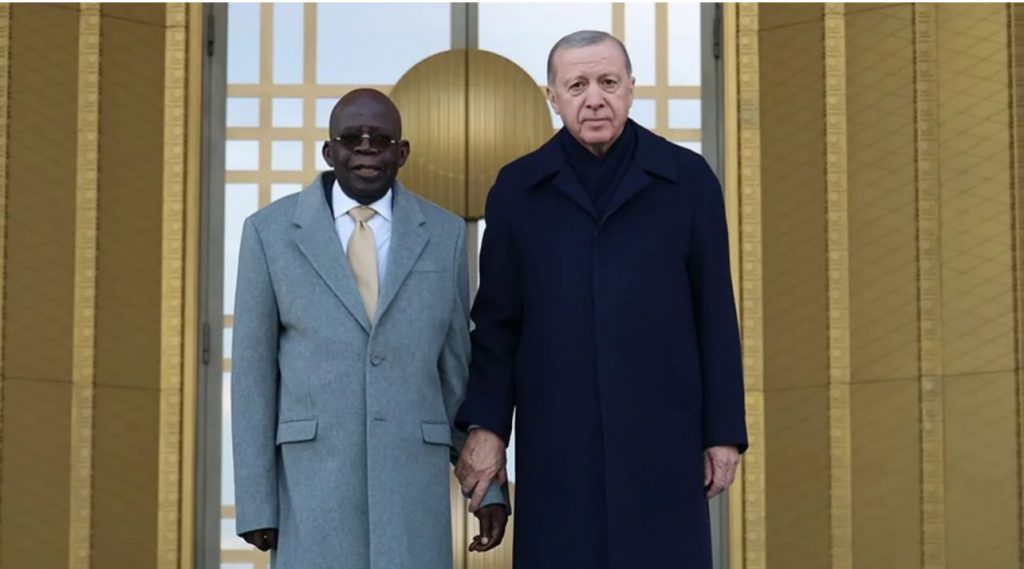
By: Dr Abolade Agbola
In a few months, the economic reforms of the government of President Tinubu will be three years old, while the government will be on the last lap of its four-year first-term mandate. The President’s statement at his inauguration on the 29th May 2023, that “the fuel subsidy was gone,” ushered in a series of reforms that reshaped the economy. Two weeks after the President’s inauguration, the Central Bank unified the multiple exchange rates on 14th June 2023 and transitioned from a rigid, multi-layered exchange rate system to a unified, “willing buyer-willing seller” managed float regime. The Presidential Committee on Fiscal Policy and Tax Reforms was constituted in July 2023 to draft a new tax and fiscal law. In March 2024, the Central Bank announced a new threshold for bank capital, requiring banks to increase their minimum share capital by the March 31, 2026, deadline to strengthen the financial system against impending economic shocks following the reforms and support the nation’s economic growth target of $ 1 trillion in GDP by 2030. Nigeria has had several foreign exchange market reforms, but the most profound ones are the transition from the Import licensing scheme to the Second-Tier Foreign Exchange market in 1986, following the deregulation and liberalization of the economy, and the massive devaluation of the currency in 1994. The uniqueness of the 2023 reforms lay in their timing, at the dawn of the administration, and in complementary policies such as the floating of the Naira following the abolition of multiple exchange rates, thus allowing the market to achieve equilibrium simultaneously in the pricing of petrol and the Naira.
The fuel subsidy removal led to a price increase for petrol from N200 per litre in May 2023 to between N1,200 and N1,300 per litre in early 2025. The floating of the Naira and unification of multiple exchange rates led to the currency’s massive devaluation from N460: $1 on 29th May 2023 to N1,700: $1 by November 2024. The post-subsidy removal and Naira floatation in the economy led to high inflation and a decline in household consumption. According to the World Bank, 56% of Nigerians (over 113 million people) living below the poverty line in 2023 are projected to reach 61% (139 million) by 2025. Today, the Naira is stabilizing at about N1,400: $1, while petrol has fallen to about N880 per litre, and inflation has receded to 15.15%, with prospects of getting to a single digit before the end of 2026. A single-digit inflation rate will take a substantial number of people out of poverty as the mystery index declines alongside the receding inflationary spiral, as policies that foster job creation, reduce price volatility, and stimulate economic growth are implemented.
Nigeria was on the brink of economic collapse in 2023. Most of the sub-nationals were unable to pay salaries. There was no budget for fuel subsidy from 1st June 2023. The external reserves of US$34.39 billion in May 2023 were barely adequate to finance 6.5 months of imports of goods and services and 8.8 months of imports of goods only. JP Morgan, a global financial institution, later claimed that the previous administration actually left Nigeria with a net reserve of $3.7 billion, rather than $34.39 billion. In May 2023, the Central Bank of Nigeria (CBN) had a foreign currency liability to foreign airlines of approximately $2.27 billion due to the airlines’ inability to repatriate their ticket sales revenue. Nigeria’s foreign reserves stood at $45.21 billion as of December 2025. In fact, the country experienced significant trade surpluses, with reports indicating around N6.69 trillion (Exports: N22.81tn, Imports: N16.12tn) as at the third quarter of 2025, driven by rising crude oil and non-oil exports, such as refined petroleum, despite some fluctuations and policy impacts, highlighting economic restructuring towards diversification.
Nigeria’s economic decline, which compelled the latest reforms, began in 2014, when crude prices began plummeting from their peak of $114 per barrel. Nigeria had two recessions in 4-year intervals, the 2016 recession, when the price of crude oil fell to $27 per barrel due to a U.S. shale oil-inspired glut. The other recession in 2020 was a result of the COVID-19 pandemic, when crude oil prices dropped to $17 per barrel amid worldwide lockdowns aimed at containing it. The economy was rebounding in 2022 when the Russia-Ukraine war disrupted the global commodity supply chain and triggered another round of economic crises. The government was reluctant to depreciate the Naira in response to economic realities, given its populist and leftist inclinations. The consequence was the near collapse of the economy by the time the 2023 elections were held. The government borrowed massively with the intent of spending its way out of the recession. Nigeria’s total public debt was N77 Trillion, or $108 billion, when President Tinubu was sworn in on the 29th May 2023. The debt profile had risen to N160 trillion ($111 billion) by the end of 2025, a moderate growth given the significant depreciation of the currency and the vast improvement in the country’s fortunes in the past two years.
Nigeria had intermittently grappled with rent, creating multiple exchange rates since 1986, when the corrupt-laden import license scheme gave way to currency auctions using the Dutch auction method. In 1986, amid the crude oil price meltdown, Nigerians rejected the IMF loan after a debate instigated by the military to carry the people along with the options available at the time for addressing the nation’s economic crisis. The objective of the IMF/World Bank-backed policy was to diversify the oil-dependent economy, reduce imports, privatize state firms, devalue the Naira, and foster private-sector growth to combat worsening economic conditions, such as inflation and debt overhang. In 2023, at its zenith, the rent reached N300 for every dollar sold by the central bank, creating artificial advantages in the market and enabling a few to extract wealth without effort. No wonder President Tinubu remarked while campaigning that if the multiple exchanges remain for one day after he is sworn in as President, it means he is benefiting from the fraud, and added, “God forbid.”
Fuel price regulation started with the Price Control Act of 1977. The fuel subsidy was introduced around 1986, when we designated fuel stations into two categories. The station that sells to commercial vehicles offers subsidized prices, while the one that sells to private vehicles charges market rates. The arrangement collapsed, and the subsidy regime crept in.
Just as in 2023, Nigeria undertook a massive devaluation of the Naira and the removal of petroleum subsidies in 1994 during the era of General Sanni Abacha. The Naira was devalued from N22 to N80 per dollar in 1994, following the near-collapse of the economy after the annulment of the 12th June 1993 elections and a protracted period of low crude oil prices, which reached $16 per barrel in 1994. Almost simultaneously, the government removed some fuel subsidies and established the Petroleum Trust Fund, headed by the late President Muhammadu Buhari as Chairman, to manage projects funded by part of the removed subsidies. According to CBN data, inflation rose from 57.03% in 1994 to 72.83% in 1995 due to the policy. The inflationary rate declined to 29.26% in 1996, and 8.52% in 1997, and 9.99% in 1998.
The reforms by President Tinubu in 2023, following the floatation of the Naira and the removal of the fuel subsidy, created a similar inflationary spiral. Inflation rate rose from 22.41% in May 2023 to 28.92% in December 2023, marking a 21-year high. The surge in inflation peaked at 34.80% by December 2024. The year-on-year inflation, however, declined to 15.15% by December 2025, indicating improving price stability as we approach the third year of the reforms. There is no doubt that inflation will recede to single digits before the end of 2026 as the trigger factors (petrol prices and exchange rates) are now determined by market forces.
The reforms of President Tinubu in 2023 were unique in several ways. The courage to embark on both fuel subsidy removal and floatation of the Naira simultaneously at the dawn of the regime amounted to front-loading the expected and inevitable policy pains for gains that will manifest as the administration winds down its first term in office. What is certain after discounting for possible, unpredictable global headwinds such as commodity price volatility, the pandemic, climate change, and supply chain disruptions, to name a few, is that the economy will continue to improve as we approach the election year. The trend will certainly play a key role in the 2027 elections. Unlike the 1994 subsidy removal and devaluation of the Naira, during which a portion of the fuel subsidy removal benefits was allocated to the Petroleum Trust Fund(PTF), the benefits of the 2023 policy actions were equitably and transparently shared among the three tiers of government, thereby strengthening the fiscal position of the federating units. The inequitable distribution of PTF projects among the federating units remains a recurring point of criticism of the initiative. Monthly allocations to the 36 states and 774 local councils increased from roughly ₦458.81 billion in May 2023 to over ₦991 billion by June 2025, representing a 116% increase in some periods. The improved FACC allocation to the states may be one of the reasons for the cordial relationship between most of the state governors and the federal government, as the states were able to execute many projects to fulfill their campaign promises.
Another unique foresight of the government in implementing the 2023 reforms is the recapitalization of banks to strengthen financial institutions, as the Naira weakens amid a spike in inflation. The massive devaluation of the Naira in 1994 led to a wave of bank failures some years later. According to Central Bank reports, by 1998, 20 distressed banks had had their licenses revoked, with dire consequences for the economy. The 2024 banking recapitalization, ending March 2026, which gave banks a 24-month window to shore up their capital, was a masterstroke to strengthen the financial system, build stronger, more resilient banks to withstand Naira depreciation shocks, and foster sustainable economic growth and development.
The brand-new set of tax and fiscal laws delivered by the Presidential Committee on Fiscal Policy and Tax Reforms became operational on the 1st of January 2026. The law aims to remove all barriers to business growth in Nigeria and further diversify the economy by enhancing its revenue profile, weaning the nation from reliance on crude oil export revenue. The laws are to enhance revenue collection efficiency, ensure transparent reporting, and promote the effective utilization of tax and other revenues to boost citizens’ tax morale, foster a healthy tax culture, and drive voluntary compliance.
The government, after protracted negotiations with labour unions, reviewed the national minimum wage in July 2024, from ₦30,000 to ₦70,000 per month, to mitigate the impact of inflation, one of the most debilitating unintended consequences of the reforms. The government, in a proactive move, promulgated the National Minimum Wage Amendment Act 2024 to shorten the minimum wage review period from 5 years to 3 years, meaning that the next formal review is due in 2027. There are several other projects and programmes aimed at repositioning the economy, such as the massive divestment of onshore oil assets in 2024 by International Oil Companies (IOCs) to indigenous Nigerian firms, which has increased crude oil production from 1.1mbarrel per day in 2023 to around 1.44million barrels per day (mbpd) in 2025. The speedy conclusion of the transfer deals and the rework of the assets is crucial to the actualization of the government’s target of daily production of 2.5m barrels per day in 2026 and the turnaround of the economy for another era of sustainable growth and development.
There is also the deployment of 2,000 high-quality tractors with trailers, ploughs, harrows, sprayers, and planters in 2025 as part of the government’s commitment to inject 2000 tractors annually to improve farming efficiency and reverse the poor mechanization of our farms. Nigeria, with a land area of 92m hectares, of which 34m hectares is arable, has less than 50,000 tractors, which is dismally low and significantly responsible for our food insecurity.
In conclusion, there is no doubt that the President and his team have done many things differently, such as the audacious simultaneous removal of the fuel subsidy and the unification of the multiple exchange rates, the floatation of the Naira, new fiscal and tax laws, the recapitalization of banks, and the minimum wage review. These are comprehensive monetary, fiscal, and structural reforms that are delivering changes, transitioning our country from a restricted, inefficient, or crisis-prone economy to a more open, market-oriented, and competitive one. The pains uploaded upfront at the inception of the regime are giving way to discernible gains and unprecedented reset of the economy for sustainable growth and development. Our nation is poised to enter another era of pervasive economic boom, having emerged from the bust cycle that began in 2014 stronger. A solid framework for replicating the economic boom of 2005 to 2014 has been laid by adopting market-determined exchange rates and fuel prices, and by ramping up crude oil production. The government must evolve pragmatic trade and investment policies to mitigate some of the unintended consequences of the reforms, such as dwindling household consumption, escalating inequalities, and the percentage of people living below the poverty line, while protecting local industries, attracting foreign investment, boosting job creation, and enhancing the standard of living of the people. Nigeria is no doubt set for another era of sustainable growth and development.
Dr Abolade Agbola, DBA, MSc Ag Econs, FCS, FCIB, Managing Director of Lam Agro Consult Limited and Lam Business Solutions, is a Stockbroker, Banker, and Agribusiness Business Consultant .He writes from Lagos
news
Alleged Coup Attempt Against Tinubu, Fraud Charges: Sylva Faces Possible Arraignment in Absentia
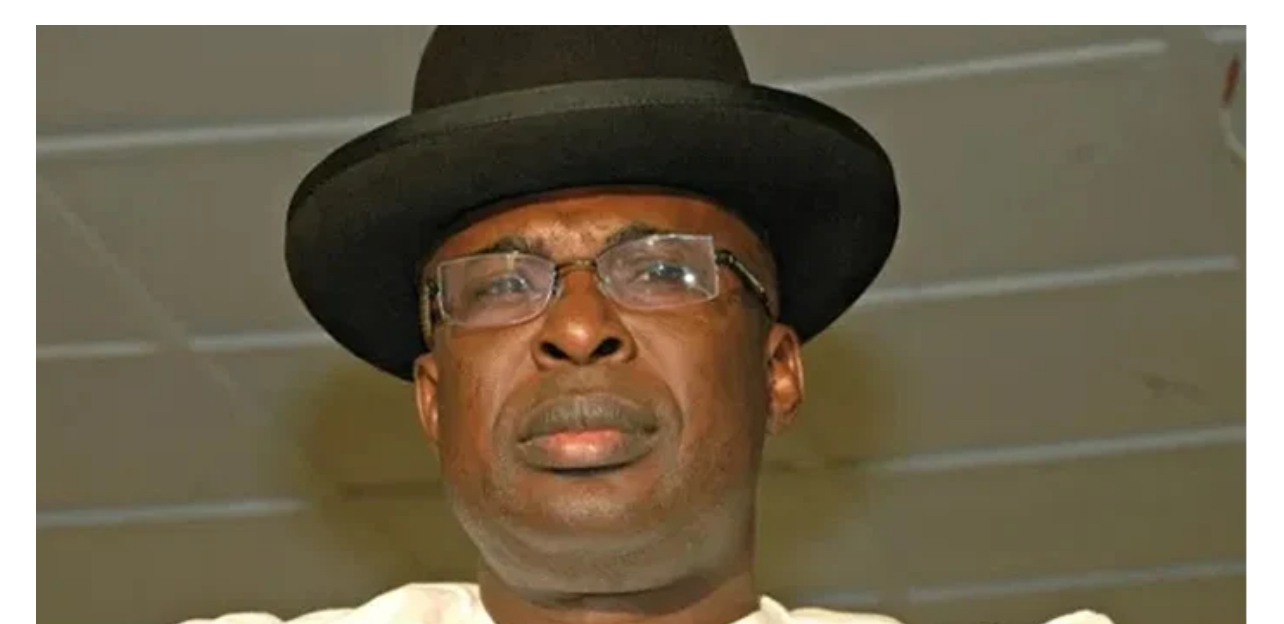
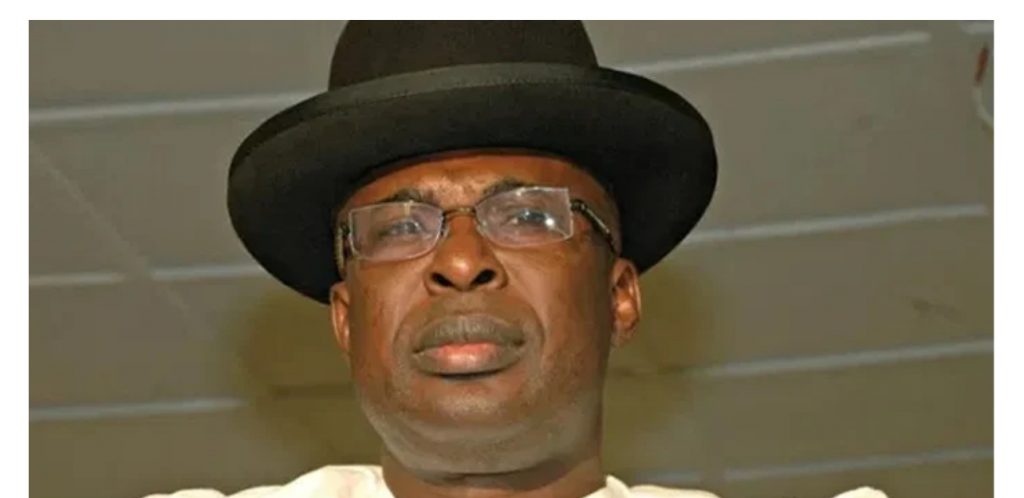
Former Bayelsa State Governor, Timipre Sylva, has yet to return to the country months after his Abuja residence was raided by operatives of the Defence Intelligence Agency.
It was reported that the raid was connected with investigations into the alleged coup attempt against President Bola Tinubu.
Our correspondence gathered that Sylva, who was also declared wanted by the Economic and Financial Crimes Commission over alleged $14,859,257 fraud, might be arraigned in absentia for financial crimes.
Top officers of the Department of State Services and the EFCC told one of our correspondents that the International Criminal Police Organisation and other Nigerian partners in the war against crime were currently trailing the former governor.
The Defence Headquarters had, in October 2025, dismissed reports of a coup attempt, despite the arrest and detention of 16 officers accused of sponsoring the plot.
The DHQ, in a statement by its Director of Defence Information, Brig Gen Tukur Gusau, on October 18, 2025, denied a Sahara Reporters story linking the detention of the officers to a failed coup and the cancellation of the October 1 Independence Day parade.
Gusau described the report as “intended to cause unnecessary tension and distrust among the populace.”
“The ongoing investigation involving the 16 officers is a routine internal process aimed at ensuring discipline and professionalism within the ranks. An investigative panel has been duly constituted, and its findings will be made public,” he said.
However, last Monday, the military backtracked, confirming that there was indeed a plot to topple Tinubu’s administration.
Presenting the outcome of investigations on the detained officers, the new Director of Defence Information, Maj Gen Samaila Uba, said the findings identified several officers with cases to answer over allegations of plotting to overthrow the government.
He said, “The findings identified a number of officers with allegations of plotting to overthrow the government, which is inconsistent with the ethics, values and professional standards required of members of the AFN.”
He noted that those indicted would be formally arraigned before relevant military judicial panels to face trial in line with the Armed Forces Act and other applicable service regulations.
Following the arrest of the 16 military officers, Sylva’s Abuja residence was raided on October 25, 2025, by operatives of the DIA.
Sylva was out of the country at the time his house was raided, but his younger brother, Paga, who serves as his Special Assistant on Domestic Affairs, along with his driver, was arrested during the operation.
Also, the former governor was declared wanted on November 10, 2025, over an alleged case of “conspiracy and dishonest conversion” of $14,859,257, part of funds injected by the Nigerian Content Development and Monitoring Board into Atlantic International Refinery and Petrochemical Limited for the construction of a refinery.
However, Sylva’s Special Assistant on Media and Public Affairs, Julius Bokoru, dismissed reports linking his principal to the coup plot, describing them as baseless and politically motivated.
He described the reports as the handiwork of “desperate and self-seeking politicians seeking to actualise their ambitions ahead of the 2027 elections.”
In a statement, Bokoru condemned the EFCC’s action, noting that the former minister was undergoing medical examination in the UK and would honour the commission’s invitation upon his return to Nigeria.
However, three months after being declared wanted, Sylva has yet to return to the country.
Our Findings revealed that the EFCC had alerted Interpol to facilitate the arrest of the former governor.
Although the Interpol spokesperson in Nigeria, Benjamin Hundeyin, who also doubles as the Force Public Relations Officer, neither answered calls nor responded to messages sent to his phone, top security officers, including DSS and police personnel, said Interpol was involved in efforts to apprehend Sylva.
“Interpol was contacted immediately after the former governor was declared wanted. Apart from the EFCC, the service is also after him. He can’t hide forever. He should submit himself for investigation if he is indeed innocent.
“Nnamdi Kanu was out of the country for a while, thinking he was off the radar. But where is he today? We will also get Sylva,” said a DSS operative knowledgeable about the matter.
Similarly, an EFCC officer, who spoke with our correspondence on condition of anonymity because he was not authorised to speak on the matter, disclosed that Sylva would be arraigned.
“He is still on our wanted list. We are looking for the right time to arraign him. However, investigations are ongoing. We are building our case against him and, when concluded, he will be charged,” the source said.
Asked if the commission would proceed to court before his apprehension, the source said Sylva could be arraigned in absentia.
“It is possible, and the law makes provision for it. However, we have not concluded that this is the option we will take. But legally, it is possible,” he added.
Speaking with one of our correspondents, another EFCC operative urged the former governor to turn himself in.
“When a suspect of such status is declared wanted, all our partners around the world are placed on notice. Wherever he is, he will be traced. The right thing to do is to turn yourself in,” he added.
However, when contacted last Thursday, Sylva’s spokesperson declined to comment on the matter.
“Given the confirmation by the Defence Headquarters, this is now a national security matter. I am not in a position to comment on speculations, travel or investigations. Relevant authorities are best placed to speak when appropriate,” Bokoru said in a text message.
-

 news5 years ago
news5 years agoUPDATE: #ENDSARS: CCTV footage of Lekki shootings intact – Says Sanwo – Olu
-

 lifestyle6 years ago
lifestyle6 years agoFormer Miss World: Mixed reactions trail Agbani Darego’s looks
-

 health5 years ago
health5 years agoChairman Agege LG, Ganiyu Egunjobi Receives Covid-19 Vaccines
-

 lifestyle4 years ago
lifestyle4 years agoObateru: Celebrating a Quintessential PR Man at 60
-

 health6 years ago
health6 years agoUPDATE : Nigeria Records 790 new cases of COVID-19
-

 health6 years ago
health6 years agoBREAKING: Nigeria confirms 663 new cases of COVID-19
-

 entertainment1 year ago
entertainment1 year agoAshny Set for Valentine Special and new Album ‘ Femme Fatale’
-

 news9 months ago
news9 months agoBREAKING: Tinubu swears in new NNPCL Board


